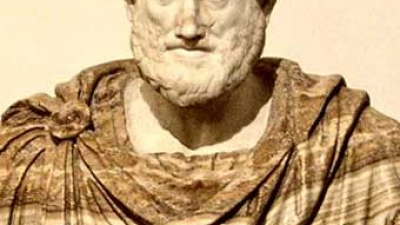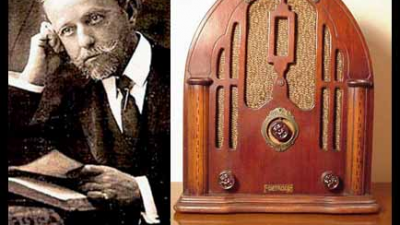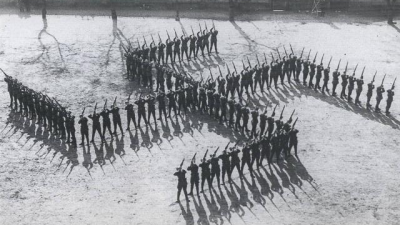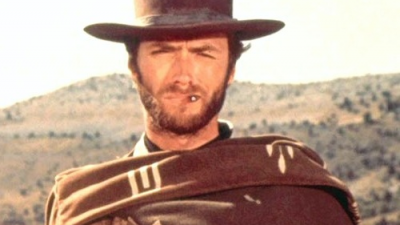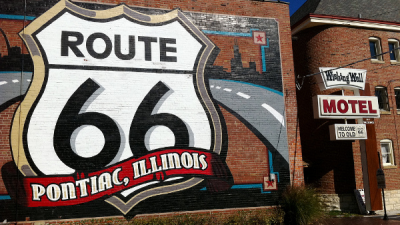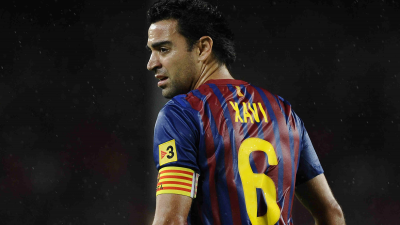Men who changed the world
|
NEWS

Source: listas.20minutos.es
TOP 21:
René Descartes (1596 - 1650)
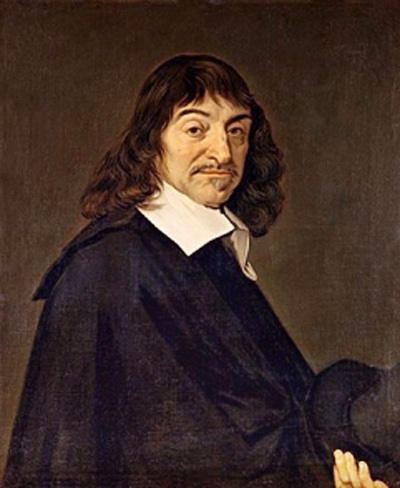
His philosophy modeled European thinking. He reflected on a closed mechanistic universal system, also developed analytical geometry, explained the refraction of light from the rainbow and investigated magnetism. It is celebrated by his phrase "I think, then I am" Descartes influenced not only the development of all subsequent thinking, but also guided him in the direction in which a century later he would reach his climax in Kant's criticism and rationalism.
TOP 20:
D. Enrique (1394 - 1460)
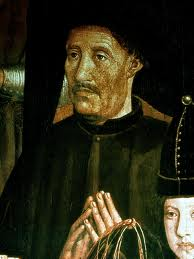
The pioneer of modern discoveries, was an infant who never hesitated to take the first steps towards the unknown. Being linked with the Ultramarine company, they soon suggest to the infant the idea of making a maritime expedition to the south and exploring the unknown for commercial reasons, and for religious reasons such as bringing the Christian faith to the pagans. But his expedition is not very successful, since they arrive in Madeira, a land that is already known. But he does not give up, and his exploration continues many years later. Years later he proceeds with the creation of the first chairs of astronomy and mathematics, he is known as the person who opened the physical path for the circumnavigation of Africa and also as the person who laid the groundwork for the discoveries to self-finance and move forward. Thus opening the history of humanity towards a new era.
TOP 19:
Homer (8th century BC)
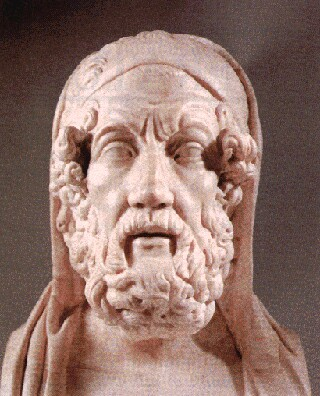
Today it is a general belief that Homer did indeed exist, he lived in the Ionian lands of Asia Minor. Creator of the most famous works "La Iliada" and "La Odyssey", is a poet whose works began all European literature, whose immortal spirit continues to beat in our time.
TOP 18:
George Washington (1732 - 1799)
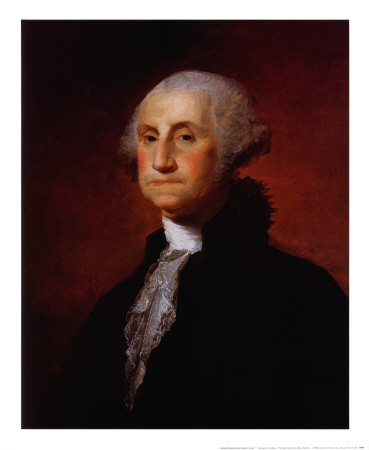
He was the head of the army during the war of American independence and became the first president of the United States. His life began as a wealthy man thanks to the cultivation of tobacco in Virginia, soon, he is appointed as commander of the troops of Virginia until the victory of the strong Duke, the defeat of France meant the elimination of a powerful enemy. Appointed commander as head of the army, he conducted a brilliant military campaign (1775 - 1783) that ended with the defeat of the British. He was soon elected president of the United States in 1789 and was re-elected in 1792. He gave a moving speech in 1796 before his departure.
TOP 17:
Muhammad (570 - 632)
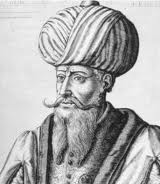
His revelations gave rise to the Muslim religion, being at first a poor businessman of Camels, but soon marries a very rich woman, however apparently he found no satisfaction in the accumulation of wealth. At 40, when the archangel Gabriel appeared to him in human form, he said, "Mohammed, you are the envoy of Allah," feeling enlightened, he began to preach among his relatives and friends. He soon denounced the fact of idolatrous customs and the bargaining trade, for not considering them at the moral height of Allah. Soon he demanded a liberation of the slaves of his time, he also proposed that the custom of killing newborn daughters should be abolished. He preached indulgence towards the poor and support for the needy. Soon after being persecuted he fled to Jathid where he had contact with a large Jewish community that contributed to his partisan movements, soon his creed was expanded and his doctrine for worshiping Allah was growing. In recent years, he used them to model the new Theocratic state. The coran that collects Muhammad's revelations ended 20 years later; This religion is characterized by a very close relationship with daily life. Soon his followers spread these beliefs across many more regions.
TOP 16:
Julius Caesar (100 - 44 BC)
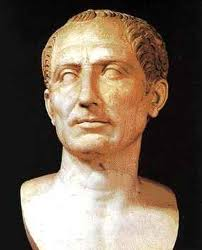
The force of his energetic personality formed the history of his century; César was from his youth next to the Populists. His uncle, the famous strategist, represented the Populists in the civil war in 78. Soon César began to systematically create the conditions that facilitated him to later occupy the highest state positions. In the year 59 César was appointed Consul in Rome with the applause of the people imposed against the Senate several laws of a social and political nature. As a pro-consul he accepted the administration of the province of Gaul and the high command over four legions (each consisting of 6,000 soldiers), with it began the universal historical significance of Caesar as a strategist defeating many enemy nations. Shortly after the Senate appointed him dictator, and thus opened the possibilities to configure the state and society according to his plans to improve it, shortly after he is killed by conspirators.
TOP 15:
Johannes Gutenberg (1397 - 1468)
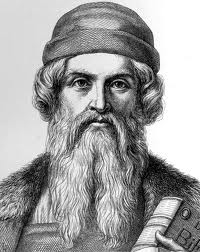
He invented the printing press with molten moving letters, this being his most immortal creation. Before Gutenberg there had been printing techniques for a long time, however all these procedures had a disadvantage: the material did not have sufficient strength for printing large editions. He begins to work on this innovative invention secretly and achieves it, but unfortunately he is condemned and forgotten, however it must be recognized that now knowledge and general culture could now spread rapidly.
TOP 14:
Nicholas Copernicus (1473 - 1543)
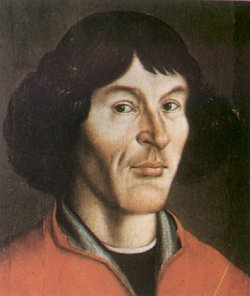
He identified the role of the earth in the universe, lived in an era where everyone was convinced that the earth was shaped like a disk and that it was the midpoint in the universe, around which the sun, the moon and the other planets revolved eternally , with his work "the thesis of a universal system" eliminated these errors and from it a starting point was built of all the knowledge that we currently have about the structure of the universe and its forces of movement. His thirst for search led him to discover theories of the third century BC that said the earth was round. In his last years of life he accepts the impression of his work, but it is not enough to be published until after his death, his work was about the universal heliocentric system in which it was claimed that the sun was the center of the universe; First being welcomed by mathematicians and then by philosophers and religious. Years later this theory is accepted worldwide.
TOP 13:
Pablo Picasso (1881 - 1973)
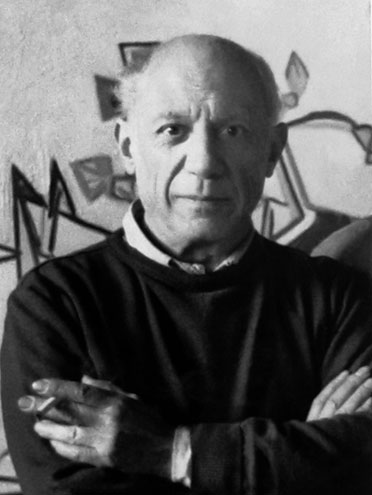
First figure of the plastic arts, he was the protagonist and inimitable creator of the various currents that revolutionized the twentieth century, his father was his first teacher, since he was a painter. Years later he obtained an honorable mention in the great exhibition of Madrid for his work "Science and Charity". In 1900 he was already a professional artist and his fame increased; He was a healthy man, endowed with an enormous capacity for work and unlimited energy to enjoy life, when he died he left the greatest personal artistic legacy of the twentieth century.
TOP 12:
William Shakespeare (1564 - 1616)
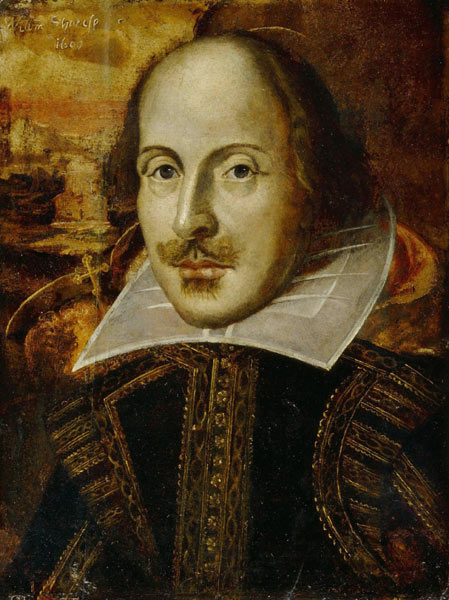
He is the most notable playwright of universal literature, beginning to work in the theater in 1586 in the most humble positions, in 1597 he achieved a resounding success with the character Falstaff, and his works were named in a synopsis of the time, but His works were not as appreciated in what he lived as today. Seven years after his death, in the year 1623 his stage partners John Heminge and Harry Condell published the edition of 36 dramatic works, this being the starting point for the investigation into the life of Shakespeare. In the play of this playwright you can be in front of a complete and precise picture of the humanity that preceded us. The figures created by him are sometimes as enigmatic as the beings of ordinary life, the universal literature that Shakespeare has is a genius without equal.
TOP 11:
Buddha (560 BC - 480 BC)
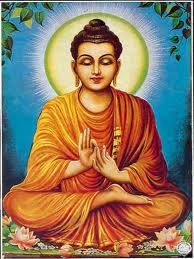
His theory of renunciation, conquered Asia, Initially known as Prince Siddhārtha, at the age of 20 undergoes a psychic crisis, which led him to a profound inner transformation. On four consecutive occasions when he left the palace where he lived, he stumbled upon an old man, a sick man, a dead man and an Ascetic; These meetings led him to question himself about the meaning of existence. Tired of the routine life he led, he secretly abandoned all his material life, cut his beard and hair, changed his clothes for a yellow penitent robe and began the pilgrimage life. He soon became a Buddha, "the wise", "the enlightened one", appearing in public as a pilgrim preacher, Crossing India was presented as the way of salvation and his disciples raised him to the quality of God. Buddhism was not originally a religion, but a philosophy: love of wisdom and aspiration to knowledge. In Buddhism no god, no soul, no eternal being, no resurrection and no social difference are recognized. It is the search for redemption, the search for the inner peace of the human being. His spiritual aspirations are "the encounter of perfection and peace", "nirvana" or "extinction" which is the end of all suffering (life).
TOP 10:
Ludwig van Beethoven (1770 - 1827)
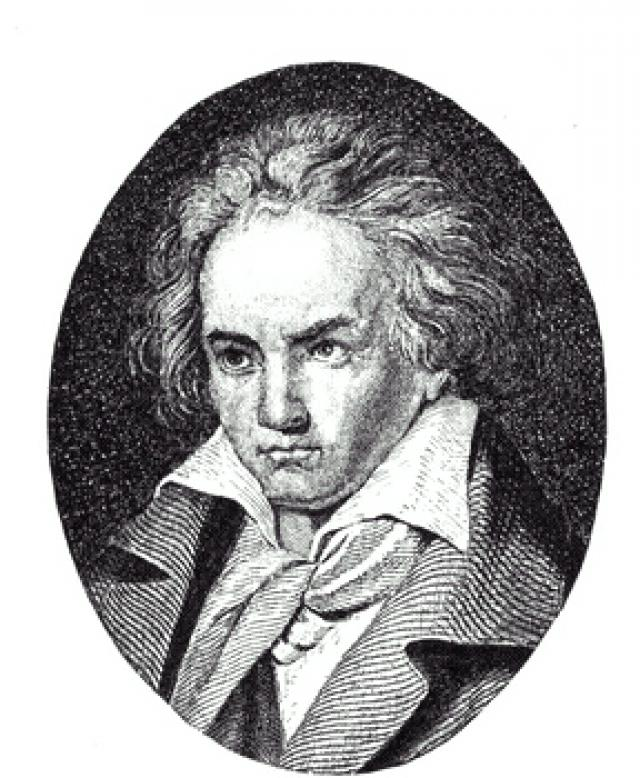
He is known as the great musician of the nineteenth century, from his young age shows gifts for music, he soon comes to dominate the organ, the violin and especially the piano, at 11 he made his first compositions. At age 17 he travels to Vienna to meet Mozart, playing before the teacher who praised his improvisation ability. Soon he began to excel in Viennese musical life, giving music such a personal character that it didn't take long to change the musical norms of the 18th century. In 1802 he suffered an ailment of the ear, since he only perceived the serious tones, in this way Beethoven began a new art through a new style of composition. But soon he is completely deaf, however this does not prevent him from continuing to compose. He soon dies in 1827 leaving an unbearable musical mark.
TOP 9:
Aristotle (384-322 BC)
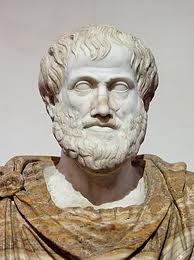
Thanks to it, the building of Western thought and science rises, is the most significant philosopher, and the first "Naturalist" became a disciple of Plato. He did Biology studies. He soon founded his own school in Athens, the Lyceum, a place of teaching and research. Soon he created a library where he collected among other things the constitutions of all known states until then, he also gathered a collection of plants and animals known until that time. Aristotle is the greatest synthesizer (system creator) of European intellectual history. With his metaphysics he wishes to know about individual value above all, but that individuality cannot be used to obtain a secure knowledge. This requires the immutable captured in the "forms." Creator of the theory of the "four causes of being" which are: the substance, the form, the end and the cause. He also founds western logic through methods to think correctly.
TOP 8:
Christopher Columbus (1451 - 1506)
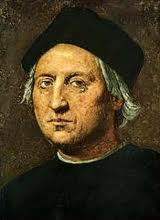
Discoverer of the “New World”, he was an illusionist, who for 6 long years from 1478 to 1484 annoyed King Juan II of Portugal with his fixed idea of searching the west, across the Atlantic, route to India, and that for this imposed: Financing for that expedition, title of Admiral for him, the position of viceroy in all the lands that they discovered, and also 10% of all the expected profits. Before his failure in the Portuguese court, he found in Spain the support he expected, since this country wanted to conquer beyond; before an audience in 1486 the ideas of Colon had a great reception. But until 1492 he was granted the power and consent to discover and conquer certain islands and firm lands in the oceanic sea. He makes a previous look at new lands and in 1492 embarked with the “Santa Maria”, the “Pinta” and the “Niña”, he was able to see land, arriving in the Bahamas, shortly afterwards to Cuba and Haiti where they got some gold which was taken as proof of his new discovery. Then he makes another 3 trips and in the last one he arrives in Central America, but this was his last feat since he soon died. But at the same time in the European countries a growing pilgrimage to America was launched.
TOP 7:
Simón Bolívar (1783 - 1830)
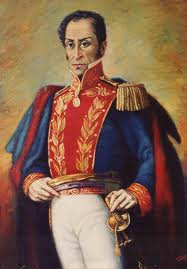
Simón Bolívar was the liberator of South America. The independence ideal, at the local beginning, very soon became a revolt aimed at ending Spanish power throughout South America. In 1797 he joined the army being this year when he traveled to Spain to complete his studies. Years later installed in Paris he met various personalities and thus promised to free his land from Spanish power. Soon with attempts to defend his land he sees the need to flee to the Colombian coast. In 1812 he gathered a small army with which he managed to expel the Spaniards from the great Colombian extension. A year later he received the title of liberator. In 1819 he convened the II congress of Venezuela, where he presented a draft constitution that was approved, the Angostura congress appointed Bolívar president, thus constituting the republic of the great Colombia formed by Venezuela, Colombia, Panama and Ecuador. The victory of Bolivar's troops in Carabobo (1821) meant the end of Spanish rule in Venezuela and in 1824 the end of Spanish rule in America.
TOP 6:
Nelson Mandela (1918 - Present)
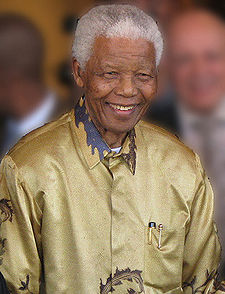
Nelson Mandela was born on July 18, 1918 in Mvezo, a town of 300 inhabitants near Umtata in the Transkei. He belonged to the Madiba clan of the Xhosa ethnic group, was one of 13 children, who had his father Gadla Henry Mphakanyiswa or (also called Henry Mgadla Mandela), with his four wives by a chief advisor to the royal house Thembu; in turn he was the grandson of the king (Ngubengcuka, who died in 1832); his mother was Nonqaphi Nosekeni Fanny third of the wives of Gadla Henry Mphakanyiswa.1 Mandela in 1937. After finishing high school, he began studying at Fort Hare University College to obtain his Bachelor of Arts degree. There he was elected as a member of the Council of Student Representatives, was expelled along with a partner, for participating in a student strike. He moved to Johannesburg, where in 1941 he completed his high school studies by correspondence at Unisa. He then studied law at the University of Wiswatersrand, where he graduated, in 1942, as a lawyer.2 He married three times, having 6 children. Of his first wife Evelyn Ntoko Mase, who died in July 2003 of pneumonia, 3 divorced in 1957 after 14 years of marriage. A daughter of this marriage died in breastfeeding age. His first son Madiba Thembekili died in 1969 in a car accident. On January 6, 2005, Mandela's second son and his first wife, Makgatho Mandela, died at the age of 54 in Johannesburg following a disease associated with AIDS, was a lawyer and businessman, married twice and father of 4 children After 38 years of marriage to Winnie Madikizela (Winnie Mandela), she separated because of political scandals in April 1992 and finally divorced on March 19, 1996. With Winnie she had two daughters, Zenani (Zeni), born on 4 February 1958, and Zindziswa (Zindzi), born in 1960. On his 80th birthday, on July 18, 1998, he married Graça Machel, the widow of Samora Machel, the former president of Mozambique and sponsor of the ANC, who died in 1986 in a plane crash. Mandela is passionate about classical music by Georg Friedrich Handel or Piotr Ilich Tchaikovsky, who usually listens to enjoying the sunsets.
TOP 5:
Isaac Newton (1642 - 1727)
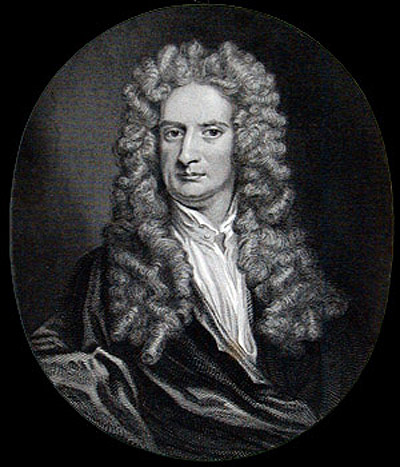
He began studying in 1661, interested in philosophy and science. Soon in 1668 he received the title of professor, a cycle in which he studied and researched the latest advances in mathematics and natural philosophy. He is considered one of the greatest scientists in history, made important contributions in many fields of science, discovered the laws that govern the movement of the stars, demonstrated the existence of gravity on the surface of the earth, also resolving issues related to light and optics, he invented differential calculus independently of Leibniz, and thanks to that calculation he was able to deduce many laws and predict others. Soon he dies after a long illness.
TOP 4:
Mahatma Gandhi (1869-1948)
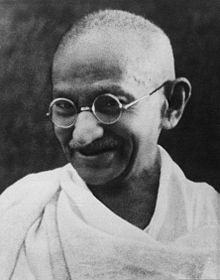
Since 1918 he was openly at the head of the Indian nationalist movement. He established novel methods of social struggle such as the hunger strike, and in his programs he rejected armed struggle and preached Ahiṃsā as a means to resist British rule. He proclaimed total fidelity to the dictates of conscience, even reaching civil disobedience if necessary; In addition, he waved for the return to the old Indian traditions. He corresponded with Leon Tolstoy, who influenced his concept of nonviolent resistance. The Salt March was highlighted, a demonstration across the country against the taxes to which this product was subject. Jailed several times, he soon became a national hero. In 1931 he participated in the London Conference, where he claimed the independence of India. He leaned in favor of the right of the Congress party, and had conflicts with his disciple Nehru, who represented the left. In 1942, London sent Richard Stafford Cripps as an intermediary to negotiate with the nationalists, but not finding a satisfactory solution, they radicalized their positions. Gandhi and his wife Kasturbá were deprived of their liberty and placed under house arrest in the Palace of the Aga Khan where she dies in 1944.3 while he was twenty-one days of fasting.
TOP 3:
Leonardo da Vinci (1452 - 1519)
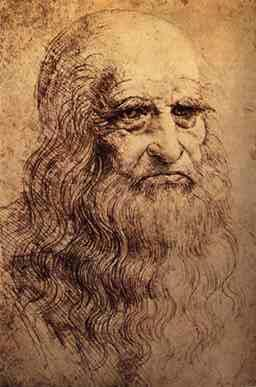
He joined the school of the famous painter and sculptor Andrea del Verrocchio at the age of 15, shortly thereafter in 1482 he was offered as a bridge builder, artillery and combat pieces, and as an engineer. Then he perfected techniques that would only be developed four centuries later; He gathered all his research and dreams in his documents using a special and hard to decipher script. Without a doubt one of the greatest exponents of the scientific advances of humanity.
TOP 2:
Albert Einstein (1879 - 1955)
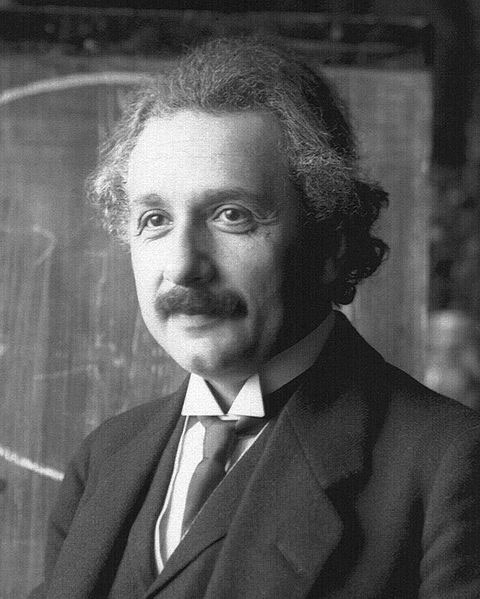
In the laboratory while studying, he liked to check things for himself and analyzed in depth the experimental results until he understood them, he is par excellence one of the most important scientists of the twentieth century both for having developed the theory of relativity in which the idea that space and time were not absolute, but that they depended on the reference system from which the movements of particles were studied, was held, and it was also argued that the speed of light traveling in the void had a value constant c (3000,000 km / s), as having contributed to quantum physics, the two new branches of the so-called modern physics.
TOP 1:
Jesus of Nazareth - Christ- (7 BC - 33)
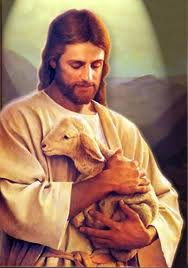
He was an exemplary man and rich in virtues, also associated with the proclamation of a widely defined sacred theory. Shortly after Christianity is founded, Peter, realizing the first Christian preaching soon gets enough followers, preaching love to others, love to the enemy and a rejection of military service. This generated great dispute with the Roman Empire, since that state of war was the one that had led Rome to its power. Thus begin horrific persecutions, but never managed to exterminate Christianity completely. In the year 303 at the time of Diocletian, the worst persecutions were carried out, with Christians being executed, thrown into wild beasts or burned. Soon the emperor was forced to resign. Constantine soon rose to power, and so Christianity was accepted, the West being completely Christianized.

